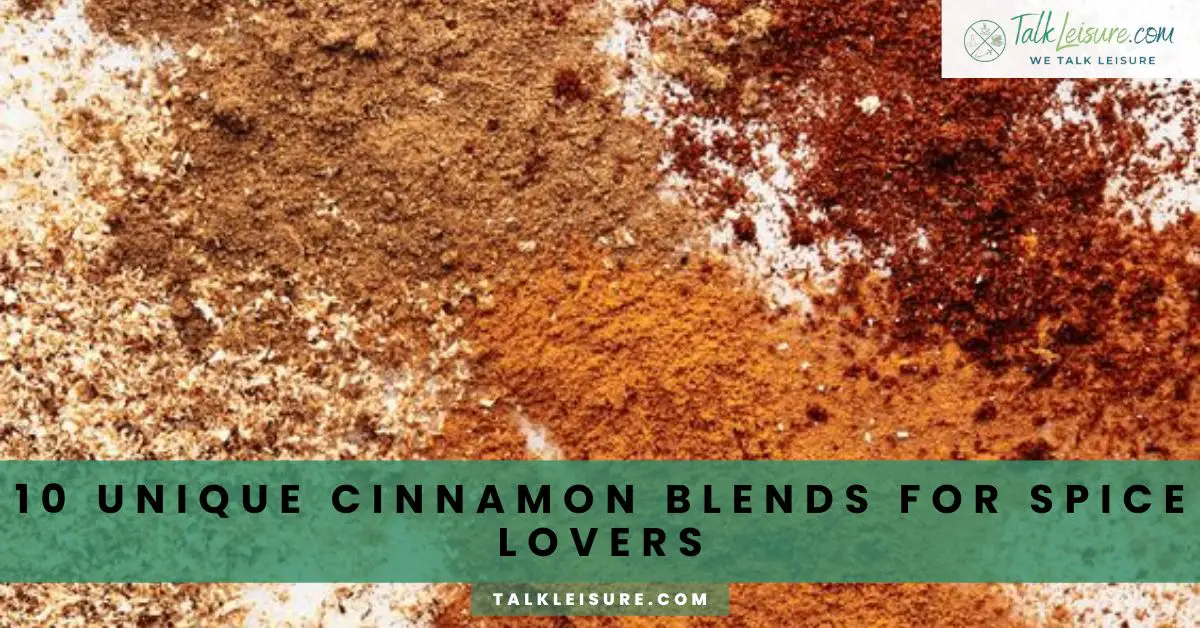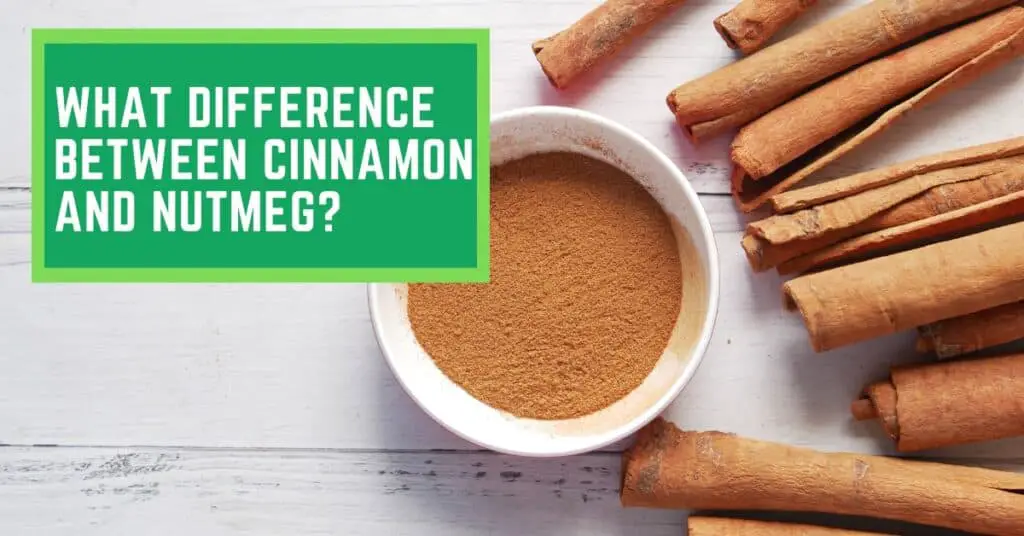Do you enjoy sprinkling a little cinnamon on top of your oatmeal or coffee in the morning?
Have you heard the buzz that cinnamon may be beneficial for losing weight?
Spices like cinnamon have gained popularity as a covert tool for losing excess weight.
But is this claim really true, or is it just fiction?
In this article, we’ll investigate if cinnamon actually can promote weight loss or if this is just a myth.
Let’s examine the evidence and distinguish fact from myth regarding cinnamon’s ability to help with weight loss.
What Is the Background of Cinnamon?
Cinnamon is a spice that is derived from the bark of trees belonging to the Cinnamomum genus.
It has been used for centuries in various cultures for its distinct flavor and aroma.
The spice is obtained by drying the inner bark of the tree, which curls up into quills or sticks.
These quills are then ground into a fine powder or used as whole sticks in cooking and baking.
Cinnamon has a rich history and has been prized for its medicinal properties as well as its culinary uses.
It was highly valued in ancient civilizations such as Egypt and was even used as a gift to monarchs and gods.
In traditional Ayurvedic medicine, cinnamon is believed to have warming properties and is used to balance the body’s energy.
What Are the Types of Cinnamon and Their Differences?
There are several different types of cinnamon available, each with its own distinctive flavor and characteristics.
The main types of cinnamon include:
Ceylon Cinnamon
Also known as “true cinnamon,” this variety is native to Sri Lanka and has a delicate, sweet flavor.
It is light brown in color and has thin, fragile quills.
Ceylon cinnamon is considered to be of higher quality compared to other types.
Cassia Cinnamon
This is the most common type of cinnamon and is often referred to as “Chinese cinnamon.”
It has a stronger and more intense flavor compared to Ceylon cinnamon.
Cassia cinnamon is reddish-brown in color and has thicker, harder quills.
Saigon Cinnamon
Also known as Vietnamese cinnamon, this variety has a spicy and robust flavor.
It is darker in color and has a higher oil content, which contributes to its strong aroma and taste.
Indonesian Cinnamon
This type of cinnamon is similar to Cassia cinnamon and is often mixed with it in commercial blends.
It has a strong, spicy flavor and is commonly used in baking.
Overview of Cinnamon’s Alleged Weight Loss Benefits

Cinnamon has gained popularity in recent years for its potential weight loss benefits.
Some individuals claim that incorporating cinnamon into their diet can help boost metabolism, suppress appetite, and aid in weight loss.
These claims are often based on traditional beliefs and anecdotal evidence.
Cinnamon is said to increase metabolism and aid in weight loss by improving insulin sensitivity.
Insulin is a hormone responsible for regulating blood sugar levels, and improved insulin sensitivity can help promote weight loss and reduce the risk of developing conditions like diabetes.
Additionally, cinnamon is believed to help suppress appetite and reduce cravings, which can be beneficial for individuals trying to control their calorie intake and achieve weight loss goals.
It is also thought to help stabilize blood sugar levels, preventing fluctuations that can lead to overeating.
What Are the Research and Studies on Cinnamon and Weight Loss?
While there is some evidence to support the potential weight loss benefits of cinnamon, more research is needed to confirm these claims.
Several studies have been conducted to investigate the effects of cinnamon on weight and metabolism.
A study published in the Journal of the Academy of Nutrition and Dietetics found that adding cinnamon to a high-fat meal may help reduce post-meal blood sugar levels.
However, the study did not directly assess the impact of cinnamon on weight loss.
Another study published in the Journal of Medicinal Food examined the effects of cinnamon supplementation on body composition and blood pressure in overweight and obese individuals.
The results showed no significant changes in weight or body composition after 12 weeks of cinnamon supplementation.
What Does the Nutritional Profile of Cinnamon Entails?
Cinnamon is a flavorful spice that is low in calories and contains minimal macronutrients.
Here is a breakdown of the nutritional content of cinnamon per 100 grams:
- Calories: 247
- Carbohydrates: 80 grams
- Fat: 1.2 grams
- Protein: 3.9 grams
- Fiber: 53 grams
Cinnamon also provides some essential vitamins and minerals in small amounts.
- Vitamin K: Cinnamon contains a small amount of vitamin K, which is important for blood clotting and bone health.
- Iron: Cinnamon provides a small amount of iron, an essential mineral for oxygen transport and energy production in the body.
- Manganese: Cinnamon is a good source of manganese, a mineral involved in metabolism, bone health, and antioxidant defenses.
- Calcium and Potassium: Cinnamon contains trace amounts of calcium and potassium, which are important for bone health and cellular function.
What Are the Potential Mechanisms of Cinnamon’s Effect on Weight Loss?
Regulation of Blood Sugar Levels
Cinnamon has been shown to have a positive impact on blood sugar levels, which may aid in weight loss.
One study found that cinnamon can improve insulin sensitivity and lower fasting blood sugar levels in individuals with type 2 diabetes.
By regulating blood sugar levels, cinnamon may help reduce cravings for high-sugar foods and prevent excessive spikes in blood sugar levels that can lead to weight gain.
Additionally, cinnamon may slow down the breakdown of carbohydrates in the digestive system, leading to a slower release of glucose into the bloodstream and a more balanced energy level throughout the day.
Influence on Metabolism and Fat Burning
Cinnamon has also been studied for its potential impact on metabolism and fat burning, which are key factors in weight loss.
Animal studies have shown that cinnamon extract can increase the activity of certain enzymes involved in metabolism, resulting in increased fat burning.
Cinnamon has been found to increase the expression of genes that are responsible for enhancing fat metabolism and reducing fat storage.
Furthermore, cinnamon may help suppress appetite and increase feelings of fullness, potentially leading to reduced calorie intake and weight loss.
Impact of Cinnamon on Hunger and Cravings
Cinnamon has been shown to potentially influence appetite control, which can aid in weight loss efforts.
Studies have found that cinnamon may help reduce cravings for high-sugar foods by regulating blood sugar levels.
By stabilizing blood sugar levels, cinnamon may help prevent excessive spikes and crashes in blood sugar that often result in increased hunger and cravings for unhealthy foods.
Cinnamon may also slow down the breakdown of carbohydrates in the digestive system, leading to a slower release of glucose into the bloodstream.
This can result in a more balanced energy level throughout the day and reduced hunger.
Cinnamon’s Effect on Satiety
Cinnamon has been studied for its potential impact on feelings of fullness and satiety, which can contribute to weight loss.
Research suggests that cinnamon may help suppress appetite, leading to reduced calorie intake.
Cinnamon has been found to increase the expression of genes responsible for enhancing fat metabolism and reducing fat storage, potentially aiding in weight loss efforts.
Additionally, cinnamon may increase feelings of fullness after a meal, which can help control portion sizes and prevent overeating.
What Are Other Health Benefits of Cinnamon?

Cinnamon is not only known for its potential impact on appetite control and weight loss but also for its numerous other health benefits.
Cinnamon contains powerful antioxidants that can help protect the body against damage from free radicals.
Its anti-inflammatory properties may help reduce inflammation in the body, which is believed to play a role in the development of chronic diseases such as heart disease, diabetes, and certain cancers.
Some studies have shown that cinnamon may help lower markers of inflammation, such as C-reactive protein (CRP), in the blood.
Cinnamon has also been studied for its potential positive impact on heart health.
Research suggests that cinnamon may help lower total cholesterol, LDL cholesterol (the “bad” cholesterol), and triglyceride levels. These are important risk factors for heart disease.
Cinnamon may also help reduce blood pressure and improve blood circulation.
Additionally, cinnamon may have blood-thinning properties that can help prevent the formation of blood clots.
What Are the Practical Ways to Incorporate Cinnamon into Your Diet?
Recommended Dosage and Intake of Cinnamon
The recommended dosage of cinnamon is 1-6 grams per day, which is equivalent to about 0.5-2 teaspoons.
It is advisable to start with a lower dosage and gradually increase it to determine your tolerance and how your body responds.
Cinnamon can be consumed in various forms, including ground cinnamon, cinnamon sticks, or cinnamon supplements.
Delicious Recipes Using Cinnamon
Incorporating cinnamon into your meals and snacks can be a flavorful and enjoyable way to reap its potential benefits.
Here are some delicious recipes that feature cinnamon
Cinnamon Apple Overnight Oats
Combine rolled oats, almond milk, chopped apples, cinnamon, and a touch of sweetener (optional) in a jar.
Shake well and let it sit in the fridge overnight.
In the morning, give it a good stir and enjoy a hearty and nourishing breakfast.
Cinnamon Roasted Sweet Potatoes
Preheat the oven to 425°F (218°C).
Cut sweet potatoes into wedges and toss them with olive oil, cinnamon, salt, and pepper.
Arrange the wedges on a baking sheet and roast for about 25-30 minutes until tender and caramelized.
Serve as a side dish or snack.
Cinnamon Spice Smoothie
Blend together almond milk, banana, spinach, almond butter, ground cinnamon, and a splash of maple syrup.
Add ice cubes for a refreshing and creamy texture.
Pour into a glass and enjoy a nutrient-packed smoothie.
What Are the Considerations and Potential Risks?
It’s important to be aware of potential allergies and side effects associated with cinnamon consumption.
While cinnamon is generally safe for most people to consume in moderation, some individuals may experience allergic reactions or side effects, including,
Allergic Reactions
Some individuals may be allergic to cinnamon and may experience symptoms such as itching, hives, swelling, or difficulty breathing.
If you have a known allergy to cinnamon or other spices, it is best to avoid consuming it.
Irritation and Mouth Sores
Cinnamon can sometimes cause irritation or even mouth sores due to its strong flavor and compounds.
If you experience any discomfort or sensitivity after consuming cinnamon, it’s recommended to reduce or avoid its consumption.
Conclusion
Cinnamon is a spice derived from the bark of Cinnamomum trees, known for its distinct flavor and aroma.
It has been used in various cultures for centuries and has been valued for its medicinal properties and culinary uses.
There are several types of cinnamon, including Ceylon Cinnamon, Cassia Cinnamon, Saigon Cinnamon, and Indonesian Cinnamon.
Cinnamon has gained popularity for its potential weight loss benefits, such as boosting metabolism, suppressing appetite, and aiding in weight loss.
Studies have shown that cinnamon can improve insulin sensitivity, suppress appetite, and stabilize blood sugar levels, which can help promote weight loss and reduce the risk of developing conditions like diabetes.
However, more research is needed to confirm these claims.
Cinnamon is low in calories and contains minimal macronutrients, with some essential vitamins and minerals found in small amounts.
It has been shown to regulate blood sugar levels, influence metabolism, and suppress appetite, potentially leading to weight loss.
Cinnamon has been found to influence appetite control and weight loss efforts by regulating blood sugar levels and slowing down carbohydrate breakdown.
It also contributes to feelings of fullness and satiety, suppressing appetite and reducing calorie intake.
Cinnamon also contains antioxidants and anti-inflammatory properties, which may help reduce inflammation and heart disease risk factors.
The recommended dosage is 1-6 grams per day, with various forms including ground cinnamon, cinnamon sticks, or cinnamon supplements.
Cinnamon can be used in recipes like cinnamon apple overnight oats, cinnamon roasted sweet potatoes, and cinnamon spice smoothies.
FAQs
01.What Would Happen If You Regularly Consumed Cinnamon and Honey?
There are several possible health benefits associated with regularly taking a combination of honey and cinnamon.
Potential Antioxidant Properties
Antioxidant-containing substances are found in both honey and cinnamon.
By aiding in the body’s defense against dangerous free radicals, antioxidants may lessen oxidative stress and promote general health.
Potential Anti-Inflammatory Effects
The anti-inflammatory properties of cinnamon and honey may help to lessen inflammation in the body.
Weight Management
According to some studies, drinking warm water with a mixture of honey and cinnamon on an empty stomach can help with weight loss.
But there isn’t enough scientific data to back up this claim.
Digestive Health
It has been suggested that honey and cinnamon are good for the digestive system.
They may be beneficial for conditions including bloating, indigestion, or stomach discomfort, though individual results may differ significantly.
Possible Antibacterial Properties
They may aid in preventing the growth of specific bacteria, which may help to prevent infections or preserve oral health.
02.What Are the Benefits of Honey and Cinnamon on Skin?
Treatment for Acne: Honey and cinnamon have anti-inflammatory and antibacterial qualities.
When used topically, they may benefit in the treatment of mild to moderate acne by reducing inflammation linked to acne and fighting germs that cause acne.
Skin Hydration: Honey helps the skin maintain moisture because it is a natural humectant.
Antioxidant Protection: The antioxidants present in both substances can aid in shielding the skin from oxidative damage brought on by free radicals.
Scar Reduction: Because honey and cinnamon are said to have healing and skin-rejuvenating characteristics, some advocates say that combining the two may help fade dark patches or scars.
Best Wishes!











